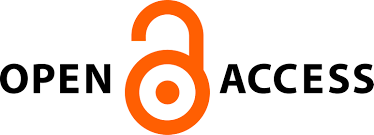Psychological Assessment: Identification, Detection of Potential and Problems of Children with Special Needs at UPTD LDPI, Padang City
Abstract
So far, the learning strategy implemented in schools is still widespread, providing all students with the same educational treatment and services. These students have different levels of skills, intelligence, interests, and talents. Therefore, early identification is needed to detect children's learning potential and problems. The results of the identification can later be used by teachers in implementing learning processes that suit the characteristics of students. The method used in identification is an intelligence test using the Stanford-Binet Intelligence Scale and Culture Fair Intelligence Scale instruments. In contrast, the method used in conveying examination results is lectures and discussions with parents and teachers regarding the characteristics of children with special needs and appropriate services and education. The identification results found that one student (1.56%) was in the immobile category, seven students (10.94%) were in the debilitated category, 13 students (20.31%) were in the borderline category, 15 students (23.44%) were in the low average category, 22 students (34.38%) were in the average category, and six students (9.38%) were in the high average category. This activity had been carried out well. Through discussions and counseling, parents and teachers gained an understanding of treatment and educational services that suit the characteristics of each child. In the future, follow-up activities will likely be related to evaluating learning strategies and student abilities.
References
Choiri, A. S., & Yusuf, M. (2009). Pendidikan anak berkebutuhan khusus secara inklusif. Inti Media Surakarta.
Depdiknas. (2007). Pedoman Khusus Penyelenggaraan Pendidikan Inklusif tentang Pengadaan dan Pembinaan Tenaga Pendidik. Direktorat Pembinaan Sekolah Luar Biasa.
Dhoka, F. A., Poang, F., Dhey, K. A., & Lajo, M. Y. (2023). Pendidikan Inklusi sebagai Upaya Mengatasi Permasalahan Sosial Anak Berkebutuhan Khusus. Jurnal Pendidikan Inklusi: Citra Bakti. 1(1), 20-30. https://doi.org/10.38048/jpicb.v1i1.2109
Hanifah, D. S., Haer, A. B., Widuri, S., & Santoso, M. B. (2021). Tantangan Anak Berkebutuhan Khusus (ABK) dalam Menjalani Pendidikan Inklusi di Tingkat Sekolah Dasar. Jurnal Penelitian Dan Pengabdian Kepada Masyarakat (JPPM), 2(3), 473–483. https://doi.org/10.24198/jppm.v2i3.37833
Soemanto, W. (2006). Psikologi Pendidikan. Bina Aksara.
Solikhin, S., & Sentono, T. (2022). Disiplin Belajar, Lingkungan Kelas, Perhatian Orang Tua sebagai Upaya Meningkatkan Hasil Belajar IPS. Proceedings Series on Social Sciences & Humanities, 3, 361–366. https://doi.org/10.30595/pssh.v3i.403
Sutriningsih, N. (2017). Penyebab Siswa Underachiever Dalam Pembelajaran Matematika. e-DuMath, Jurnal Pendidikan Matematika, 3(2), 148-154. https://doi.org/10.52657/je.v3i2.459
Utami, N. E. B. (2019). Layanan Guru Kelas Bagi Siswa Slow Learner Di Sekolah Inklusi (SD N Bangunrejo 2 Yogyakarta). Al-Bidayah: Jurnal Pendidikan Dasar Islam, 10(2), 271–290. https://doi.org/10.14421/al-bidayah.v10i2.164
Widiastuti, N. L. G. K., & Winaya, I. M. A. (2019). Prinsip Khusus Dan Jenis Layanan Pendidikan Bagi Anak Tunagrahita. Jurnal Santiaji Pendidikan (JSP), 9(2), 116–126. https://doi.org/10.36733/jsp.v9i2.392

This work is licensed under a Creative Commons Attribution-NonCommercial-ShareAlike 4.0 International License.





















